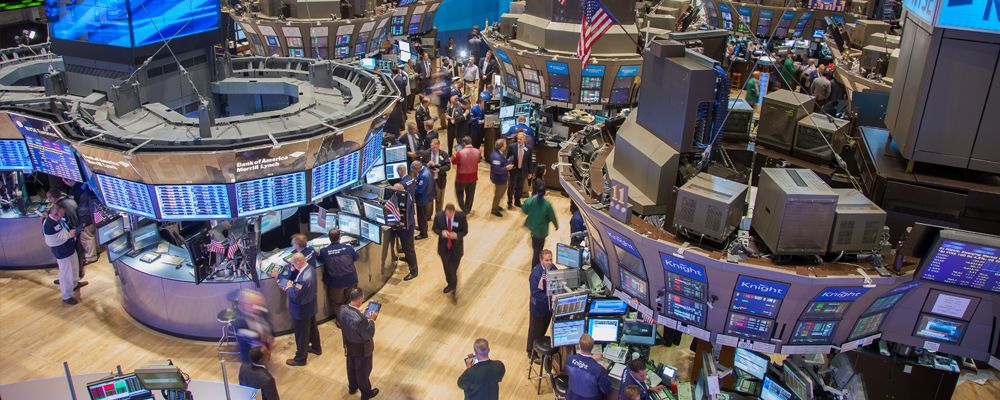Financial Markets have had a roller coaster ride in 2016
- Monday, May 22, 2017
 Financial markets have had a roller coaster of a ride so far in 2016 with deep falls in January being followed by a rebound rally which has left investors back to where they started the year. Global equity markets have closely tracked the oil price as it fell due to oversupply and perceived lack of demand. The catalyst for January’s sharp declines were a threat of global slowdown, a devaluation of the Chinese renminbi and some weak data from the USA soon after the rise in US interest rates last December.
Financial markets have had a roller coaster of a ride so far in 2016 with deep falls in January being followed by a rebound rally which has left investors back to where they started the year. Global equity markets have closely tracked the oil price as it fell due to oversupply and perceived lack of demand. The catalyst for January’s sharp declines were a threat of global slowdown, a devaluation of the Chinese renminbi and some weak data from the USA soon after the rise in US interest rates last December.
It soon became apparent that such fears were overplayed and the world economy would avoid a further setback. However it did take action by several major central banks to kick start the recovery. This came in the form of the US Federal Reserve signalling a deferment to further rate rises. In doing so it brought a partial decline in the ongoing appreciation of the US$. This decline in US$ values certainly aided China as well as commodity prices and commodity producing economies.
The European Central Bank (ECB) extended its asset purchasing programme from €60bn per month to €80bn per month and introduced negative overnight interest rates to incentivise savers to spend and banks to lend. These actions created economic activity and the inflation the continent so desires. Negative interest rates put a charge on deposits encouraging banks to lend or buy assets increasing consumption and demand, but can also be counterproductive as they hit bank earnings and risk a restriction on credit.
Further market relief was provided by Zhou Xiaochuan, the Governor of the Peoples Bank of China (PBC), when he made it clear that he did not wish to devalue the renminbi in trade weighted terms. His comments signalled that Chinese policy makers were comfortable with growth forecasts. The hard data from China indicates that growth continues and with the heavy outflow of foreign currency reserves reversing, China looks to have got a grip on capital outflows and its currency. These developments have helped towards a stronger renminbi, a stable but softer US$ and a rise in oil prices. This has in turn supported global equity values.
Even though markets have recovered from January’s falls the outlook remains difficult as the prospect for global GDP growth looks at times to be nervous. Consequently, corporate earnings growth could be stronger. The UK GDP growth in Q2 has been effected by the EU referendum with much investment activity postponed. Both business and consumer confidence have been affected as the economy slowed. The fact that Britain has voted to leave the EU has send shock waves around global markets. It will take time to evaluate the economic and business impact of the result.
Oil prices have had an influence on the behaviour of equity and bond markets and a critical role in the determining the path of interest rates in the US. It is clear that the supply and demand equilibrium in oil is coming back into balance and the continued recovery in oil is significant. However, what has been surprising is the muted impact this oil price recovery has had on asset prices. This may be explained by markets responding to the Federal Reserve pausing on further interest rate rises this year.
The Federal Reserve has to some degree allowed inflation to rise, weakening the US$ and in turn boosting trade and commodity prices. A weaker US$ means a weaker renminbi as their relative values are loosely tied. The weakening US$ is a gift to China and may not be enough to start a bull market but it has put off any bears.
Inflationary pressure is building in the US and UK with both economies effectively fully employed and skill shortages emerging. When the oil price growth is priced into the annual figures it will become a positive contributor to inflation. In the US, if oil and food were removed from the basket of goods measured for RPI then US inflation is already above the Feds 2% target. Prior to the Brexit result it felt inevitable that Dr Yellen would announce US interest rate rises in the fall but that now looks unlikely.
In China, there has been a decisive improvement in economic activity in the last few months particularly for industries involved in major infrastructure projects. There has been a material improvement in industries such as cement, steel and construction. This is also evident in the iron ore market where prices have risen by 25%. The Chinese authorities have accelerated infrastructure spending, some of which was previously delayed by two years due to a corruption clampdown.
Asia and China have been out of favour in global equity portfolios with the market over-reacting to the falls of August 15 and January 16. Asian equities are trading below the 15 year average for price earnings and at a 25% discount to other global developed markets.

Chris Davies
Chartered Financial AdviserChris is a Chartered Independent Financial Adviser and leads the investment team.
About Estate Capital
Financial Services
Our Contacts
7 Uplands Crescent,
Swansea, South Wales,
SA2 0PA.
Tel: 01792 477763
